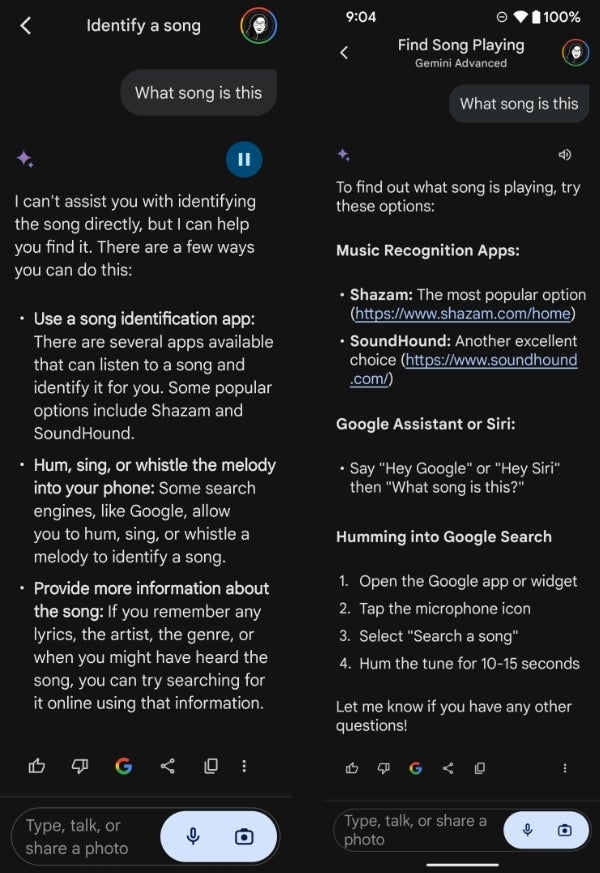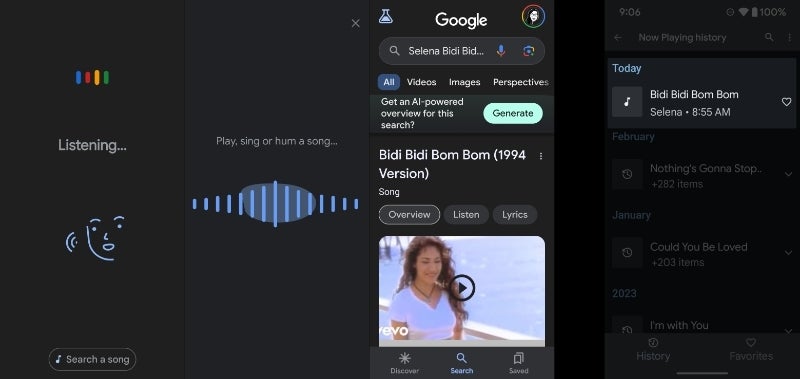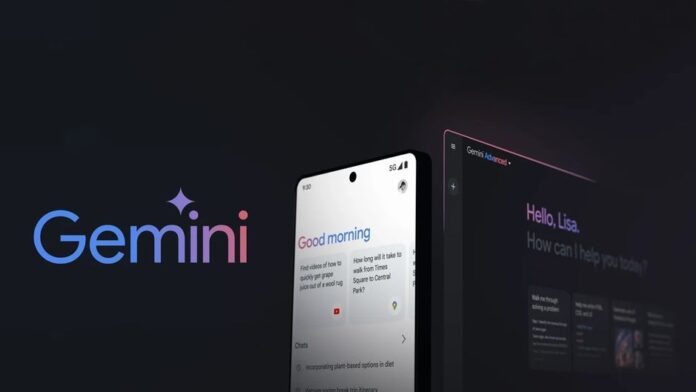Google
unveiled its rebrand of the Bard AI chatbot earlier last month, and with it launched a
new Android app, thus completing the transformation to “Gemini.” From the start, it was pretty obvious that Gemini was still not a complete Google Assistant replacement on
Android phones, as it lacked some of the basic features that Assistant users were accustomed to. Now, a new Gemini shortcoming has surfaced that further justifies this idea.As documented in a
Techcrunch article, Gemini on Android also lacks the ability to identify songs, something that the Google Assistant could easily accomplish. Queries to identify a song that’s playing, as performed by yours truly on a Samsung S24 Ultra and a Google Pixel, return an error message stating “I can’t assist you with identifying the song directly, but I can help you find it,” further offering suggestions for other ways in which I could do this — including using a third party song identification app.
Results of a query to identify a song on a Samsung and Pixel phone | Image credit: Phone Arena
To be perfectly honest, in my own experience, this isn’t such a huge hurdle to get over. As an alternative, you can always use the Google search widget to tap on the microphone and then tap on the option to identify a song that’s playing; however, this requires a couple more taps than necessary. Similarly, on a Google Pixel phone with the “Now Playing” feature on, you could see the song that’s playing right on the home screen or find it after the fact by looking at your “Now Playing” history. This method is less intrusive but still requires manual interference from the user, which defeats the point of having a voice assistant.
Song identification alternatives on Android: Google search widget (left) and “Now Playing” history (right) | Image credit: Phone Arena
It should be noted that I am currently subscribed to the AI Premium plan, which grants me access to Gemini Advanced, which is supposed to be more advanced than the standard free version. At this time, I am on the free two month trial that the company offered at launch, however, that free trial expires in April, at which point everyone who opted to give Gemini Advanced a chance will be charged $20 a month if not cancelled.
The question remains if Google will get Gemini to work in a way that will make a monthly paid subscription worth keeping. While the lack of song identification doesn’t personally bother me as much, this might not be the case for others who use this functionality on a regular basis. Gemini has already had its share of issues since launch, including the now paused human image generation feature due to the intense backlash it underwent.
At this point, Gemini does feel like a rushed product, lacking the polish and fundamental features of its predecessor. While innovation is certainly welcomed, Gemini currently feels like a beta test. Hopefully, Google swiftly addresses these shortcomings, but for now, it’s tough to recommend Gemini as a true Google Assistant replacement on Android.


